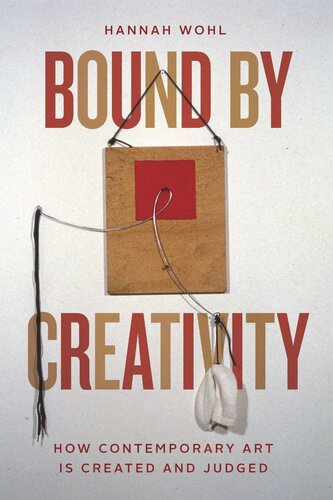

Most ebook files are in PDF format, so you can easily read them using various software such as Foxit Reader or directly on the Google Chrome browser.
Some ebook files are released by publishers in other formats such as .awz, .mobi, .epub, .fb2, etc. You may need to install specific software to read these formats on mobile/PC, such as Calibre.
Please read the tutorial at this link: https://ebookbell.com/faq
We offer FREE conversion to the popular formats you request; however, this may take some time. Therefore, right after payment, please email us, and we will try to provide the service as quickly as possible.
For some exceptional file formats or broken links (if any), please refrain from opening any disputes. Instead, email us first, and we will try to assist within a maximum of 6 hours.
EbookBell Team

5.0
68 reviewsWhile our traditional view of creative work might lead us to think of artists as solitary visionaries, the creative process is in fact deeply social. From those trying to land their first solo show to those with dozens of museum exhibitions, artists are influenced by others’ evaluations. In Bound by Creativity, sociologist Hannah Wohl draws on more than one hundred interviews and two years of ethnographic research in the New York contemporary art market, developing a sociological perspective on creativity through the analytic lens of judgment. Wohl takes readers into artists’ studios and shares firsthand how they decide which works to leave unfinished, destroy, put into storage, or exhibit. Wohl then transports readers into the art world, examining the interactions in galleries, international art fairs, and collectors’ homes that shape artists’ understandings of their work.
Wohl shows us how moments of judgment—whether by artists, curators, dealers, or collectors—reveal artistic practices to be profoundly sociological, both because artists’ sensibilities are informed by their interactions with others, and because artists’ decisions about their work affect the objects that circulate through the world. We see that judgment is an integral element of the creative process, resulting in the creation of distinctive and original works. Creativity, Wohl shows, rests on these highly social dynamics, and exploring it through this lens sheds new light on the production of cultural objects, markets, and prestige.